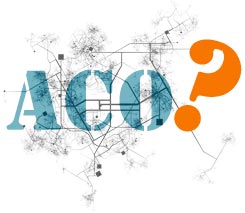 Health Information Exchange Is the Foundation for ACOs
Health Information Exchange Is the Foundation for ACOs
Reference to Accountable Care Organizations (ACO) appears in only seven pages of the massive healthcare reform law yet in healthcare circles ACOs have become one of the most discussed and debated pieces of that legislation. Conceived as a model for streamlining and improving delivery of health services through the realignment of incentives, ACOs seek to synchronize the motives and actions among physicians, clinicians and hospitals to better coordinate care to Medicare beneficiaries and other patients while keeping costs down. According to the legislation, an ACO must agree to manage all of the healthcare needs of a minimum of 5,000 Medicare beneficiaries for at least three years.
ACOs are intended to replace the traditional fee-for-service Medicare setting, where problems have long persisted in coordinating care among multiple physicians for beneficiaries who might have as many as five chronic conditions. These patients are more often than not subjected to redundant care, and are at increased risk for medical error and hospital readmission that, in many cases, could have been avoided if services had been aggressively communicated and synchronized among physicians, providers and suppliers of ancillary services.
